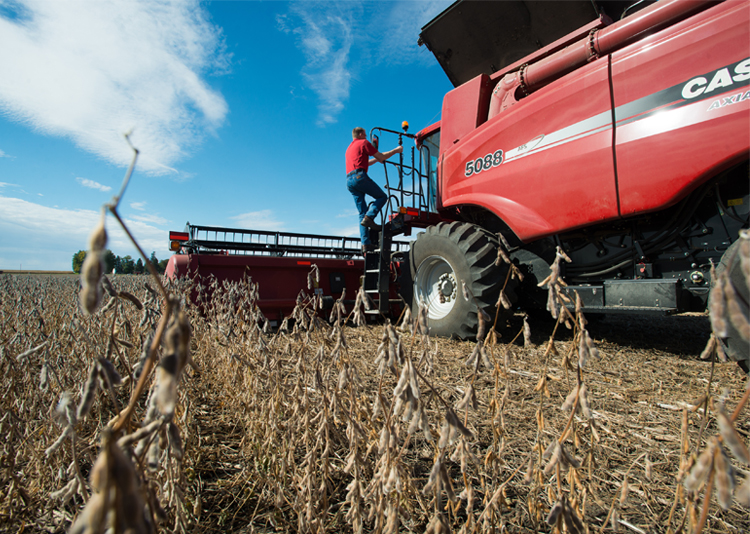Tax and Clean Energy Policy

Incentivizing the Use of Clean Fuels
The U.S. biodiesel and renewable diesel industry supports more than 107,400 U.S. jobs, paying $5.8 billion in annual wages, and meets 9% of the nation’s distillate fuel demand. Biodiesel and renewable diesel production supports 10% of the value of every bushel of U.S. soybeans.
Clean fuels works with other stakeholders to ensure that biodiesel and renewable diesel producers, as well as soy, canola and other renewable feedstocks, continue to be supported in federal and state tax incentives. Clean Fuels is strongly urging the U.S. Treasury to provide immediate guidance or rules on new tax credits that began in 2025 and improve the benefits to farmers.
- Group Letter Urging Treasury Action on 45Z Tax Credit
Twenty-five trade associations representing producers, feedstock providers, blenders, consumers, and retailers of low-carbon, renewable fuels sent a letter to Treasury Secretary Janet Yellen, urging Treasury to finalize and publish guidance for the §45 Clean Fuels Production Credit as soon as possible.
- Group Letter Urging Use of GREET Model for SAF Tax Incentive
Clean Fuels, ASA, NOPA and U.S. Canola urge using the most recent version of the GREET model as the “similar methodology” option for determining SAF tax credit eligibility.
- Clean Fuels Comments on Treasury Guidance for Sustainable Aviation Fuel Credit
SAF derived from co-processing is ineligible for the tax incentive. Treasury should adopt GREET as the similar methodology.
- Letter from 12 Senators to Treasury Secretary Yellen Urging Use of GREET in SAF Tax Incentives
Treasury should adopt the U.S. Department of Energy’s Greenhouse Gases, Regulated Emissions, and Energy Use in Technologies
(GREET) model as the secondary methodology for calculating tax credits for sustainable aviation fuel (SAF) produced - Clean Fuels Comments on Treasury Notice for Clean Hydrogen and Clean Fuel Credits
Treasury should use GREET -- a U.S. lifecycle carbon emissions accounting model -- to determine tax credits for U.S. produced fuels.
- Clean Fuels Comments to U.S. Treasury on Clean Fuel Production Credit Guidance, 2022
It is critical that Treasury and IRS implement a verified, current, and science-based emissions rate methodology to set tax credit values.
- Letter to President Biden on Clean Fuels Jobs and Economic Impact, July 2022
In 2021, while petroleum production fell, the biodiesel and renewable diesel industry grew and added jobs. Stable tax incentives were a key reason.
- Study: The Economic Benefits of the Biodiesel Blenders’ Credit
The biodiesel tax incentive supports thousands of rural jobs and environmental benefits worth $4 billion in 2020.
- Letter to Congress Policy Priorities, 2021
The industry's federal policy priorities include stable tax incentives, funding for infrastructure, and optimizing the RFS to achieve carbon reductions.
April 10, 2025
Clean Fuels Reacts to §45Z Guidance
January 13, 2025
Clean Fuels, Soy Growers Urge Congress to Extend Biodiesel Tax Credit
November 14, 2024
Clean Fuels Urges Treasury to Immediately Issue §45Z Guidance and Safe Harbors
August 28, 2024
Clean Fuels Submits Detailed Technical Response to USDA’s Climate Smart Ag Request for Information
July 25, 2024
Clean Fuels Applauds Bipartisan, Bicameral Letter Urging Timely Rules on Production Tax Incentive
July 24, 2024
Clean Fuels Welcomes USDA Request for Information on Climate Smart Ag
June 26, 2024
Groups Urge Treasury to Promptly Complete §45Z Clean Fuels Production Credit Guidance
May 15, 2024
Clean Fuels Welcomes §40B SAF GREET Model
May 1, 2024
Clean Fuels Welcomes IRS Guidance on Sustainable Aviation Fuel Incentive
December 15, 2023
